
Oceanographer Aims to Turn Millions of Surfers Into Marine Scientists
Using riding boards equipped with sensors, surfers could collect crucial data on the health of the oceans. Read the story in takepart.com.



Using riding boards equipped with sensors, surfers could collect crucial data on the health of the oceans. Read the story in takepart.com.
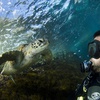
Over the past few years, there’s been an explosion of opportunities for ordinary people to collect data for researchers, and sometimes help analyze it. Platforms such as Zooniverse, Scientific American and SciStarter are all helping citizens (anyone who’s part of a community, in this context) connect with scientists and get involved with the process of scientific discovery. Read the full story here.
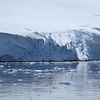
The amount of sea level rise that comes from the oceans warming and expanding has been underestimated, and could be about twice as much as previously calculated, German researchers have said. Read the full story in The Guardian.

How far does your cat travel from home? That was the question the Cat Tracker project set out to answer. Roland Kays, research associate professor at NC State, believes this project is an example of the power of citizen science. Read the full story in the Technician.
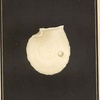
Ocean acidification and warming may disrupt the formation of pearls, according to a new study. Read the full story in Science World Report.

THE weather gods conspired to provide a rare chance to survey a remote and rarely visited section of north Kimberley reef recently, with footage that will inform the future study of reefs through climate change. Read the full story in Science Network WA.
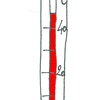
A new study has found that the world’s oceans are warming at a faster rate and half the increase in global ocean heat since 1865 has occurred in the past two decades. Read the full story in TIME magazine.
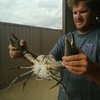
No matter how unhip you feel wearing waders or hauling a butterfly net, citizen science is cool. That’s obvious from the boom in online projects that let you count penguins, hunt planets, or identify animals in the Serengeti, as well as the scientific papers using these data. Now researchers in Sweden have looked into the science of citizen science itself. How much of this volunteer research is really happening, they …
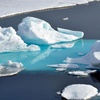
Scientists have made the surprising discovery that giant melting icebergs could actually be slowing global warming. Satellite images show that as giant icebergs melt, they leave behind trails of nutrients. The nutrients stimulate growth of marine life, which leads to million of tonnes of carbon being taken from the atmosphere. Read the full story in ABC News
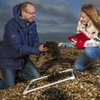
Kent’s budding scientists are being invited to help make history by being part of the largest ever coastal marine citizen science project. The £1.7m Capturing Our Coast project, funded through the Heritage Lottery Fund, is designed to further understanding of the abundance and distribution of marine life around the UK. Read more in Kent News.